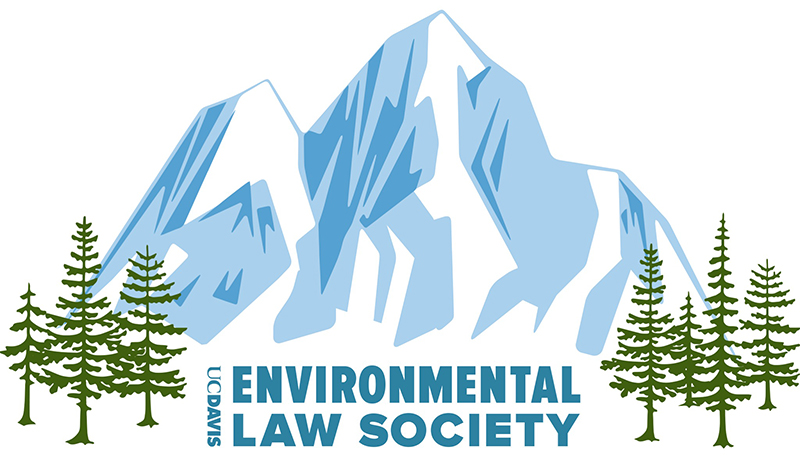9:00-9:45AM (45 minutes MCLE)
Mr. McNamara is the president of the California State Board of Food and Agriculture. He has served on the board since 2002 and was appointed president in 2011 by Governor Brown. McNamara is also the president and owner of Sierra Orchards, a diversified farming operation that includes field, processing, and marketing operations, producing primarily organic walnuts. McNamara founded and serves as president of the Center for Land-Based Learning. This program is dedicated to creating the next generation of farmers and teaching California's youth about the importance of agriculture and watershed conservation. McNamara has been awarded numerous honors including the Leopold Conservation Award, the California Governor's Environmental and Economic Leadership Award, the UC Davis Award of Distinction and Outstanding Alumnus Award.
9:55-11:10AM (1 hour 15 minutes MCLE)
Alternative energy is growing in importance for environmental and economic reasons. As states seek to achieve the mandates of their renewable portfolio standards (RPS) and low carbon fuel standards (LCFS), biofuel production has increased significantly. Arguably there are both social and environmental costs that accompany the growth of the biofuel industry. On one hand, there are concerns that leaps in biofuel production are resulting in land use changes, converting wetlands and forest to farmland, and driving up the cost of food and feed. On the other hand, biofuels have the potential to decrease our reliance on fossil fuels and, to some extent, provide a domestic energy supply. This panel seeks to explore these issues.
Timothy O’Connor, Attorney & Director of California Climate for Environmental Defense Fund
Zachary Marker, Legal Fellow, Center for Food Safety
Samantha Arens, Staff Attorney, California Energy Commission
Colin Carter, Director, Giannini Foundation of Agricultural Economics, UC Davis
Michael Murza (MODERATING), Environmental Law Fellow, California Environmental Law & Policy Center
11:20AM-12:35PM (1 hour 15 minutes MCLE)
Californians take great pride in both their environmental consciousness and the quality of their brews and wine. As an environmental leader on numerous fronts, it is not surprising that some California breweries and wineries seek to raise the bar on sustainable beer and wine production, from ecological farming practices, to production that increases efficiency and incorporates renewable energy. This panel will explore the significant eco-footprint of producing beer and wine, and the means of reducing this footprint.
Cheri Chastain, Sustainability Coordinator, Sierra Nevada Brewery
Rob Anglin, Founding Partner, HolmanTeague
Daniel Sumner, Director, UC Agricultural Issues Center at UC Davis
David Block, Chair, Department of Viticulture and Enology, Robert Mondavi Institute for Wine & Food Sciences
Ronny Clausner (MODERATING), President, Wine Law Association, UC Davis Class of 2014
Keynote: Josette Lewis, Associate Director UC Davis World Food Center
1:10-2:00PM (45 minutes MCLE)
The World Food Center aims to generate transformative knowledge and practical solutions to feed and nourish people locally and globally for decades to come, utilizing UC Davis’ role as the preeminent institution connecting visionary research and teaching with innovators, philanthropists, industry, and public and social leaders. Before joining the World Food Center, Lewis began her career as diplomacy fellow for the U.S. Agency for International Development, where she went on to become a regional research coordinator and senior biotechnology adviser. She also served as Director of the Office of Agriculture and spent time in the private sector as Director of Agricultural Development at Arcadia Biosciences. In recognition of her work, Lewis has received Superior Honor Awards from USAID and the State Department.
Panel 3: BDCP’s Impact on Sustainable Farming
2:15-3:30PM (1 hour 15 minutes MCLE)
There is no sustainable agriculture without sufficient water. BDCP seeks to improve the long-term reliability of California's water supply for farms that require imported water, yet BDCP impacts on Delta farms remain one of its most controversial aspects. This panel will provide a brief overview of BDCP and its impacts on in-Delta agriculture, as well as potential benefits for the agricultural interests that may experience improved water supply reliability as a result of the project. Ways in which the project planners are attempting to reduce impacts on Delta farms will also be discussed. Because the tunnels (a.k.a. “Conservation Measure 1”) could also facilitate additional north-south water transfers, there are potentially significant implications for increased groundwater use and other impacts on agricultural uses north of the Delta, which will also be discussed.
Katy Spanos, Retired Assistant Chief Counsel, Department of Water Resources
Osha Meserve, Shareholder, Soluri Meserve
Jason Peltier, Chief Deputy General Manager, Westlands Water District
Richard M. Frank (MODERATING), Professor of Environmental Practice, UC Davis School of Law, and Director California Environmental Law and Policy Center
3:45-5:00PM (1 hour 15 minutes MCLE)
California has come to realize that the health of its Delta farmland is dependent on the health of the surrounding ecosystem. Thus, wildlife-friendly farming is being emphasized like never before. This panel will discuss the importance of wildlife-friendly farming for both environmental and agricultural reasons. Panelists will then review changes in farming practices that make agriculture more wildlife-friendly, as well as the costs and difficulties in implementing a wildlife-friendly approach to agriculture.
Michele Clark, Director, Yolo Land Trust
Michael Eaton, Board Vice Chair, Sacramento-San Joaquin Delta Conservancy Board
Aaron Will, Regional Biologist, Ducks Unlimited
Chris Scheuring, Associate Counsel, California Farm Bureau Federation
Tim Taylor (MODERATING), Partner, Stoel Rives and Adjunct Professor, UC Davis School of Law
Closing Remarks
5:00PM
